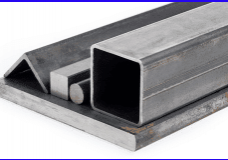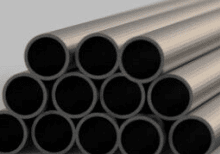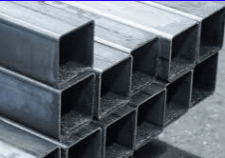Mild Steel Products
Mild Steel Supplier of: 080A15, S355, EN8, EN36, EN40B



The One Stop Metal and Plastic Shop
080A15 Mild Steel
080A15 is a low-carbon mild steel, known for its good machinability and ease of fabrication. With a carbon content of approximately 0.15%, it has relatively low tensile strength compared to higher-carbon steels but offers excellent ductility and weldability. These characteristics make it suitable for applications where forming, bending, or welding is required without the need for high strength.
080A15 mild steel is commonly used in the manufacturing of components such as bolts, nuts, studs, and general engineering parts where moderate strength is sufficient. Its good machinability makes it a popular choice for applications involving cutting, drilling, or turning. However, due to its low carbon content, 080A15 is not suitable for applications where high wear resistance or surface hardness is required unless it undergoes surface treatments like carburising.
S355 Mild Steel
S355 is a high-strength, low-alloy structural steel that is widely used in construction and engineering due to its combination of good mechanical properties and weldability. It is part of the European standard EN 10025 and is categorised by its minimum yield strength of 355 MPa, which gives it greater strength compared to standard mild steel grades.
S355 mild steel offers excellent tensile strength, making it suitable for use in load-bearing structures like bridges, buildings, and heavy machinery. It is commonly used for structural beams, columns, and frames, where durability and strength are key requirements. Despite its higher strength, S355 maintains good ductility and toughness, making it well-suited for both cold forming and welding.
S355 mild steel also exhibits good resistance to atmospheric corrosion, making it appropriate for outdoor applications, although additional protection like painting or galvanising is recommended in particularly corrosive environments.
EN8 Mild Steel
EN36 Mild Steel
EN36 is a high-quality, low-carbon mild steel that is best known for its excellent hardening capabilities and high surface wear resistance. This steel grade is primarily used for case hardening, a process that creates a hard, wear-resistant outer layer while maintaining a tough and ductile core. EN36 typically contains nickel and chromium, which enhance its case-hardening properties and improve toughness and strength.
EN36 mild steel is commonly used in applications requiring a tough core and a hard, wear-resistant surface, such as gears, crankshafts, camshafts, and other heavily loaded parts in automotive and mechanical engineering. The steel’s ability to withstand high stresses and resist wear makes it ideal for components that operate under demanding conditions, including heavy loads or high speeds.
After case hardening, EN36 achieves an extremely hard surface that resists wear and fatigue, while its core remains tough to absorb shocks and resist fractures. This makes it especially suitable for applications where both surface durability and internal toughness are critical.
In addition to its hardening qualities, EN36 offers good machinability and can be welded, though care must be taken during the welding process to avoid affecting its hardened surface properties. EN36 steel is frequently chosen for high-performance components that require long service life and high reliability.
EN40B Mild Steel
EN40B is a low-alloy nitriding steel, known for its excellent wear resistance, high strength, and toughness, particularly after undergoing the nitriding process. Unlike standard mild steels, EN40B is designed to achieve a very hard, wear-resistant surface while maintaining a tough core. This is achieved through nitriding, a heat treatment process that introduces nitrogen into the surface, significantly increasing surface hardness without the need for additional machining or extensive heat treatment.
EN40B mild steel is particularly well-suited for components that require both high surface hardness and core strength, such as crankshafts, gears, camshafts, and high-stress engine parts. Its good wear resistance makes it ideal for applications where parts are subject to friction or heavy loads over time.
In addition to its surface hardening potential, EN40B steel offers good fatigue resistance and impact toughness, ensuring durability even under demanding conditions. It also has decent machinability, though its machinability decreases after nitriding due to the hardened surface. Welding EN40B can be challenging and typically requires preheating and post-weld heat treatment to maintain the steel's performance characteristics.
- construction
- automotive
- machinery and equipment
- fasteners
- home improvements projects
Yes! We offer cutting services, utilising our state-of-the-art metal saw to meet your specific size requirements for mild steel products.
- malleability
- tensile strength
- corrosion resistance
- magnetism
- cost-effective
